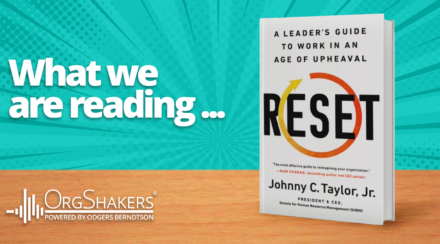Menu

What Can Employers Do to Tackle Feelings of Loneliness?
When I left the corporate world and started my own HR Consultancy, I had to adjust from being part of a team to working on my own. While I was excited to be taking this courageous step, I would find myself running out of steam as the afternoon progressed. I’d usually find myself ringing my husband at about 3:30pm to see what time he’d be home. I missed human interaction.
Now, several years later, I have strategies for preventing myself from becoming lonely. Ideally, I try to schedule my projects so that every few weeks I’m delivering a workshop in-person as that is what will really boost my energy!
As we head into Loneliness Awareness Week, I found myself reflecting on my experience as the pandemic and consequent remote or hybrid work models have brought the challenge of isolation to so many more people. I chose to work by myself; a lot of the people now feeling lonely did not choose this workplace environment.
And it’s not just a problem specific to remote working, in-person employees can also experience loneliness.
It’s easy to say that companies should focus on encouraging camaraderie in the workforce, but let’s not forget that everyone is different, so it’s hard to provide a simple solution. Even so, it’s worth organizations continuing to focus on this, as a recent survey by SHRM showed that 85% of workers say that having a close friend at work has positively impacted their career, and 76% say that this makes them more likely to remain at their employer.
A good first step is to ask people what they would like. Many leaders have realized by now that simply asking people how they are isn’t going to necessarily generate the insight that they are after. Instead ask something more specific, such as:
- What’s one thing that makes your day instantly better?
- What do you wish you did more of today?
- What non-work-related activity could we make time for as part of our next team meeting?
In addition to encouraging elements that focus on team building and social connection, there are also plenty of ways of building relationships through work tasks. These questions will also produce thoughts on those aspects.
I encourage leaders to explore approaches such as ensuring everyone has the chance to be a part of a cross-functional project, regularly celebrating successes (no matter how small) and encouraging mentoring and/or buddy relationships. If you have a multi-generational workforce, this last one can be particularly wonderful at supporting an inclusive workplace culture; multiple research results have shown that the combination of experience and new thinking leads to great outcomes and a less stressful workplace environment.
Above all, one thing I will always advocate for is leading by example. If you are a leader, make sure that you take the time to stop and engage in genuine, social conversations!
To discuss how we can help support you with this topic further, please get in touch with me at anya@orgshakers.com



